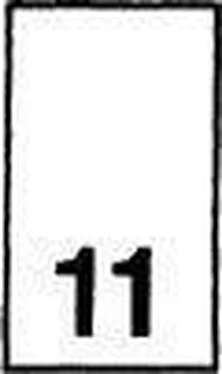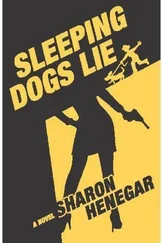“May I have your passport, please?”
Ackerman plucked it from his coat pocket and handed it to Mr. Sullivan, who glanced at it and set it aside for a moment.
“How will you be paying for that, sir?”
“Cash.”
“Fine,” said Mr. Sullivan. “Let me just confirm that it’s still available.” He pressed three numbers on his telephone and began to speak in Chinese. Ackerman glanced around at the people lining up behind him and setting their luggage down. As he turned back, his eyes caught something peculiar. At the far end of the counter there was another man speaking into a telephone in Chinese. It was the cadence that caught his attention. When Mr. Sullivan talked, the other man stopped, and then Mr. Sullivan said something and the other man glanced in his direction. Ackerman watched the man until the two hung up almost simultaneously. He stood at the counter while Mr. Sullivan made out the ticket, copying his name from his passport, and then he walked away.
He knew it was possible that Mr. Sullivan was only calling his supervisor to check on that reservation. It might even be that two conversations followed approximately the same course, ended at the same time, and had nothing to do with each other. But it might also be that two men who worked for Hong Kong Airlines had just made a year’s salary. He had been away a long time. Ten years ago the Balacontano family could steal the cargoes off wide-body planes in the middle of JFK and truck them out. It wasn’t hard to believe that by now they could search passenger lists for the right alias.
He walked to Gate 28, where he was to board the flight for Hong Kong, then walked along the concourse until he found the right place to sit. It was two gates away, at Gate 26. The seat he wanted was occupied, but a lot of flights were going to leave before he needed it. He used the time to buy a ticket for the four-thirty plane to Albuquerque, and then sat in a coffee shop where he could watch people coming through the metal detectors that guarded the concourse, until he realized that watching was pointless. They didn’t have to send faces he knew; somehow they had found out what name he was using. And they wouldn’t be clumsy enough to get stopped by a metal detector. The gun would be concealed inside another steel object or, more likely, was already here.
He returned to Gate 26 and began his vigil with the idea that nothing would happen until they announced that his plane was boarding.
Jack Hamp took his old carry-on bag out of the car and walked back through the front door, up to the metal-detector station where Marlita Gibson gave him a sober nod as she looked through the fluoroscope at the outlines of his Colt .45 1911 automatic and the spare magazines in the pocket beside it. Hamp had a strong desire not to fire it. The 225-grain semiwadcutter hollowpoint ammunition was what he called the “airport load.” It not only mushroomed on impact but expanded. It wasn’t going through any walls if he missed. If he didn’t miss, the recipient was going to find out that Jesus wanted him for a sunbeam. He snatched the bag off the conveyor and walked on. As he strode along the concourse toward Gate 28, he opened the bag and searched for a ticket folder in his collection that said Hong Kong Airlines. When he found it, he stuck it in his coat pocket where it could be seen.
At the gate, he sat down in the smoking area a few yards away from the nearest passenger and lit a cigarette. If the man spotted him first and was any kind of shot, at least he wouldn’t miss Hamp and put a hole in some kid’s head. And this one might be pretty good. From what Richardson had said, he sounded like a genuine badass. As Hamp inhaled the first sweet, cool smoke from his cigarette, he thought about how much worse the last puff always tasted. He kept his eyes on the passing throng, moving from face to face, first studying, then rejecting. He acknowledged that if he was already thinking about how hot and nasty this cigarette was going to get, it probably was time to quit smoking. All the pleasure of it depended on your being able to keep things from yourself.
He was going on the long odds that this Mr. Ackerman was going to be armed. It was highly unlikely that anybody could get on a plane at Kennedy and still be able to reach into his pants at LAX and come up with anything in his hand that he wasn’t born with. But people who killed a lot for money got into the habit of brooding about such things in their spare time, and, more often than you would think, they found ways.
Hamp glanced at the airline desk in front of the gate and noted that Mr. Sullivan was in position. As soon as Mr. Ackerman showed his face, he was going to meet Jack Hamp.
Ackerman saw the tall, thin, melancholy blond man come into the waiting area at Gate 28 and sit down to light a cigarette, and he studied him with special care. He had a worn carry-on bag, and what looked like a Hong Kong Airlines ticket sticking out of his pocket. He was alone. He was doing pretty much what anybody would do in his position, which was to watch the people around him without letting them notice.
But then Mr. Sullivan arrived. He came up to the second floor by climbing an exterior staircase, popped through the door they never let passengers use, and posted himself at the desk near the gate, but he didn’t make any attempt to do anything that could be construed as work. Ackerman wasn’t going anywhere on Hong Kong Airlines today. He decided he had better try to find out exactly what kind of trouble he was in.
Ackerman moved to a seat that put the pillar at Gate 27 between him and Mr. Sullivan at Gate 28, and kept his eyes on the tall blond man. The tall guy was a possibility. He had even managed to sit in the right place, where he had a clear fire zone in front of him and nobody behind him. But how the hell could they have gotten him here so quickly? Peter Mantino would practically have to keep the guy on call in the airport in case somebody he wanted showed up.
That was unlikely. Ackerman still couldn’t decide. The man had carried himself with a certain amount of confidence, as though he had some reason to be sure what was going to happen if he got into a fight, but as though he wasn’t contemplating anything like that at the moment. It was the walk that came back to Ackerman. That was probably what had drawn his attention in the first place. He tried to picture it again, and when the man moved across his line of sight in his memory, he was favoring his left leg slightly. It was just the sort of unconscious change in his stride that two or three pounds of steel stuck on one side of his body might induce. No, the gun would be in the flight bag, where he could put his hand on it without attracting attention.
Then something happened that was so unexpected that Ackerman didn’t admit to himself that he had caught it at first. Four men entered the waiting area at Gate 28 from different directions. They were all well over six feet tall and heavy, and they looked big and fat and white and obvious. They lurked in different parts of the waiting area, but kept glancing at each other to preserve fixed distances, like a team playing zones. Then each of them looked at the tall, thin blond man as though they had been searching for him. From time to time each of them would watch him for a second and then turn away. Even the blond man knew immediately that they were cops. Ackerman studied the man’s reaction. The shooter couldn’t believe it any more than Ackerman could Whatever the shooter was carrying must have been picked up on the X-ray machine or, more likely, somebody had seen him go wherever it was hidden in the airport and stick it in his bag. Now he was going to get arrested.
Ackerman considered the possibility that he might be able to sit patiently until the cops rolled up the shooter, then stroll across to Gate 28, step onto the plane and get out of here. But then one of the cops started to walk toward the smoking area where the shooter was sitting, and the others each in his own time began to move closer. The shooter saw it too, but he didn’t look frightened. He looked angry, which was a very bad sign. It meant that he was at least considering doing something with the gun in his flight bag other than letting them take it and having his lawyer claim the bag wasn’t his. Ackerman couldn’t take the chance of sitting here while the tall guy opened fire. No matter what happened, this wasn’t the way out of Los Angeles. He stood up and turned away, adopting the same purposeful, self-important gait as the men and women nearest to him on the concourse. They all seemed comfortable in the knowledge that airports weren’t about space, but about time. Like them, he didn’t pause anywhere or slow his pace, and he didn’t look back.
Читать дальше












